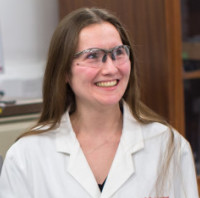Materials for Energy

Materials science and engineering provide the essential building blocks of the transition to a zero-pollution economy, enabling us to design and model new technologies, products and processes and improve existing technologies to minimise their impact on the natural world or reduce their running costs. Our Materials for Energy theme reflects the importance of materials research in underpinning work across a broad range of energy topics and the centrality of Imperial’s materials community in our work.
The theme also reflects our emphasis on sustainability. Realising a Net-Zero economy will require a substantial increase in the mining and processing of critical materials, from the lithium and cobalt used in electric vehicles to the tellurium in photovoltaic solar panels. It is vital that these materials are sourced and used in a responsible manner or replaced with novel materials that can provide effective, sustainable and economically viable alternatives.
Theme Leads
 Professor Robin Grimes - Research Theme Lead, Materials for Energy
Professor Robin Grimes - Research Theme Lead, Materials for Energy
Professor Sir Robin Grimes has been Professor of Materials Physics since 2002. In 2017, he was appointed Nuclear Chief Scientific Adviser at the Ministry of Defence and was previously the Foreign and Commonwealth Office Chief Scientific Adviser. His primary research interest is the application and development of computer simulation techniques to predict structural and dynamic properties of ceramics and metals. Topics of particular interest include radiation damage, nuclear fuels, cladding and waste form behaviour and performance, ionic conductivity and defect processes for fuel cell materials, surface structural processes and interfaces between glass and ceramic.
 Dr Catrin Mair Davies - Research Theme Lead, Materials for Energy
Dr Catrin Mair Davies - Research Theme Lead, Materials for Energy
Dr Catrin Mair Davies is a Senior Lecturer within the Mechanics of Materials Division at the Department of Mechanical Engineering, Imperial College London. She manages the High Temperature Centre at Imperial and specialises in experimental testing and finite element modelling of creep deformation, damage, creep crack initiation and growth, low-cycle fatigue, weld simulations, prediction and measurement of residual stresses and failure analyses.
Research Groups
Centre of Nuclear Engineering
Led by Dr Michael Bluck, the Centre for Nuclear Engineering is a cross-depratmental group with researchers from the departments of Mechanical Engineering, Chemical Engineering, Civil and Environmental Engineering, Earth Science and Engineering and Materials. The centre is an umbrella organisation for all nuclear engineering academic activities at Imperial College London and coordinates a Centre for Doctoral Training in Nuclear Energy.
The Photochemistry Research Group
Led by Professor James Durrant, the Photochemistry Research Group is based in the Department of Chemistry. The team are developing new chemical approaches to solar energy conversion by harnessing solar energy either to produce electricity or molecular fuels. They are specifically looking at low cost, printed photovoltaic technologies for harnessing solar energy to produce electricity and characterising and developing photoelectrodes and nanoparticles for solar driven fuel synthesis.
Reaction Engineering and Catalytic Technology
Led by Professor Klaus Hellgardt, the Reaction Engineering and Catalytic Technology Group (REaCT) is a multi-disciplinary team based in the Department of Chemical Engineering and has a focus on solar fuels, clean fossil fuels and sustainable catalysis and flow chemistry. The team’s work includes identifying strategies for various cyanobacteria-based processes for creating fuels such as hydrogen, reducing the impact of fossil fuels through novel green chemistry to remove tar, sulphur andasphaltenes and developing flow catalysis to improve and change synthetic chemistry pathways currently used by industry.
Payne Research Group
Led by Dr David Payne, the Payne Research Group is based in the Department of Materials. The group’s work focuses on understanding the surface chemistry and bulk electronic structure of a wide range of materials, from oxides to metals, nanomaterials to biomaterials. One of their key project’s is RELAB, through which they are developing a novel, low temperature, lower energy recycling process for lead acid batteries.
Multifunctional Nanomaterials
Led by Dr Camille Petit, the Multifunctional Nanomaterials group is based in the Department of Chemical Engineering. Their research focuses on the design, characterisation and testing of new multifunctional nanomaterials as a platform for addressing energy, environmental and water sustainability. Of particular interest to the group are the areas of carbon management and water purification/reuse. They create 3D porous materials and 2D nanomaterials that can perform multiple functions as a way to integrate multiple processes, for example materials that can capture carbon and convert it to other forms/uses.
The Composites Centre
Led by Professor Emile Greenhalgh, the Composites Centre is a multi-departmental group featuring researchers from the departments of Aeronautics, Chemistry, Chemical Engineering, Mechanical Engineering and Civil and Environmental Engineering. Their diverse research portfolio ranges from fundamental, exploratory research to very-focused research targeted at the immediate needs of industry. In the energy sector they are working with car manufacturers on use of new materials and creating multifunctional composites that store electrical energy.
Materials Design group
Led by Professor Aron Walsh, the Materials Design Group is based in the Department of Materials. The group’s focus is on computer-accelerated design and optimisation of materials for energy conversion and storage. The team are world-leading in the theory and simulation of perovskite and kesterite solar cells, defect processes in semiconductors, and develop software for materials informatics and machine learning applied to clean energy technologies.
Theory and Simulation of Energy Materials group
Led by Dr Johannes Lischner, the Theory and simulation of energy materials group is based in the Department of Materials. The team use advanced modelling techniques based on quantum mechanics to gain insight into the properties of energy materials. Currently, they are studying the electronic structure of solid-liquid interfaces for photoelectrochemical energy conversion, the photocatalytic properties of metallic nanoparticles and optical properties of polymers for photovoltaic applications.
Organic Electronics Group
Led by Professor Iain McCulloch, the Organic Electronics Group is based in the Department of Chemistry. Their research is focused on the design, synthesis and characterisation of new semiconducting polymers and molecular materials for organic solar cell applications and solar fuels. Recently, the group has developed a new class of electron accepting small molecules that can improve the light absorption and environmental stability of organic solar cells to move towards low-cost, printable and sustainable solar energy technologies.
Transformative Electrochemistry group
Led by Dr Ifan Stephens, the group is based in the Department of Materials. Their aim is to enable the large-scale electrochemical conversion of renewable energy to fuels and valuable chemicals and vice versa. Topics of interest include CO2 reduction and oxygen evolution for solar fuel production, dinitrogen reduction to ammonia, the sustainable electrosynthesis of chemicals, aqueous metal-air batteries and lithium ion battery degradation.


